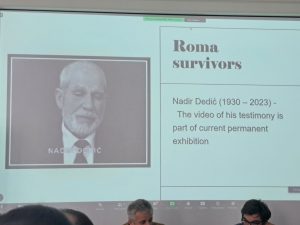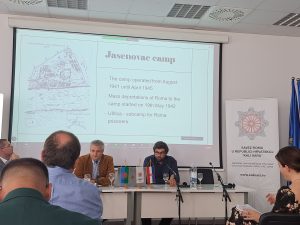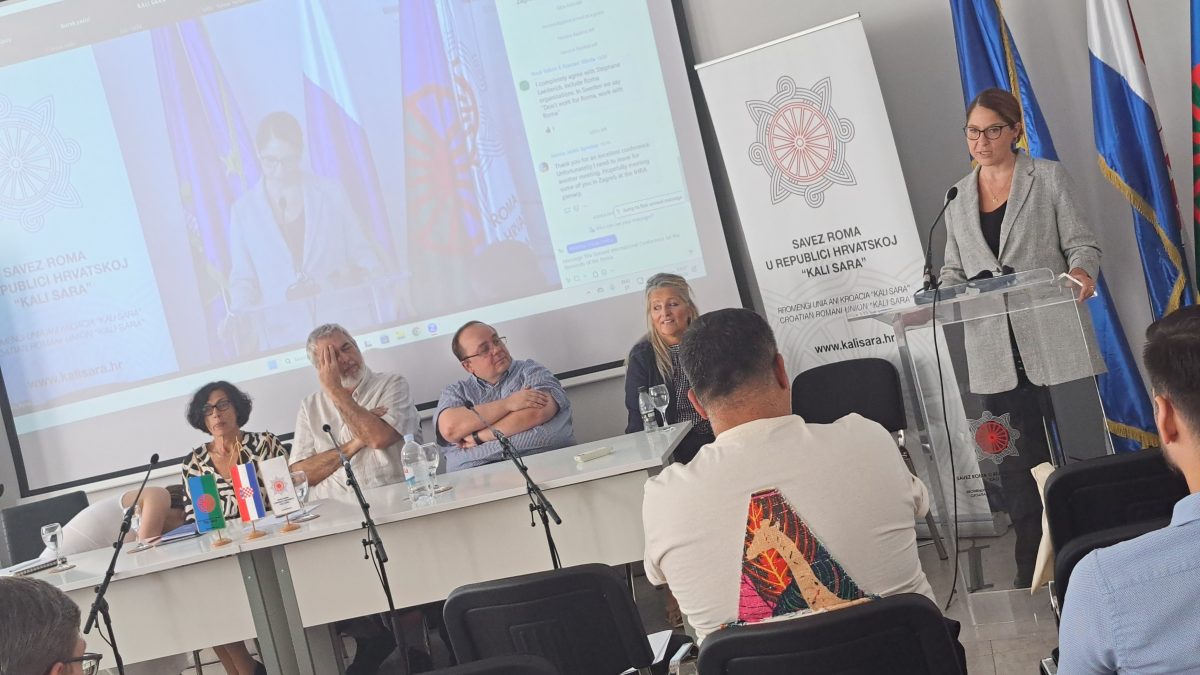On 11 and 12 September 2023, the Second International Conference on Genocide against Roma was held in Zagreb, with a focus on combating denial and distortion of information on the genocide against the Roma committed during World War II. The conference was organized by the Croatian presidency of the International Holocaust Remembrance Alliance (IHRA) in cooperation with the Roma Union in Croatia, Kali Sara.
Closing the event, Ombudswoman Tena Šimonovic Einwalter welcomed the organization of a conference on this very topic and the dedication of all of its participants in the work on this still insufficiently explored and largely neglected topic. The Ombudswoman stressed the importance of discussing and raising awareness on this topic, which is a matter of the culture of memory, but is also related to the prejudice and discrimination that the Roma still face, both in Croatia and in many other European countries.
The participants were unison in the conclusion that, unfortunately, genocide against the Roma is often denied or not spoken about, even in the academic circles. They stressed the importance of working with the people employed in the education system, who need to be prepared for teaching on this topic, including by providing high quality educational materials. The IHRA works in this direction, so the guidelines for the education on the genocide against the Roma are being prepared.


A major problem is the lack of data, documentation and research on the genocide against the Roma, which continues to make it difficult to raise awareness, preserve memories and honor the victims. Unfortunately, such state of affairs contributes to the continuation of inappropriate treatment of everything the Roma went through during World War II.
The conference also highlighted the work of the Ustica Memorial Centre, part of the Jasenovac concentration camp, where at least 16,173 Roma were killed during the so-called “Independent State of Croatia”. It is now visited by pupils, including members of the Roma national minority, but as pointed out at the event, the number of such visits should increase in the future.
Part of the conference was also dedicated to the importance of the language used when talking about the Roma and the genocide that took place over them, using the term Samudaripen in Croatia.
More about the IHRA’s work, which covers 35 countries in the world, can be found here, and more about the Croatian IHRA presidency can be found here.


